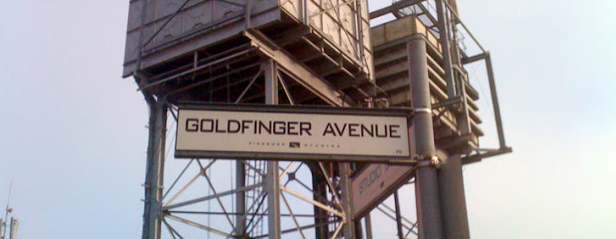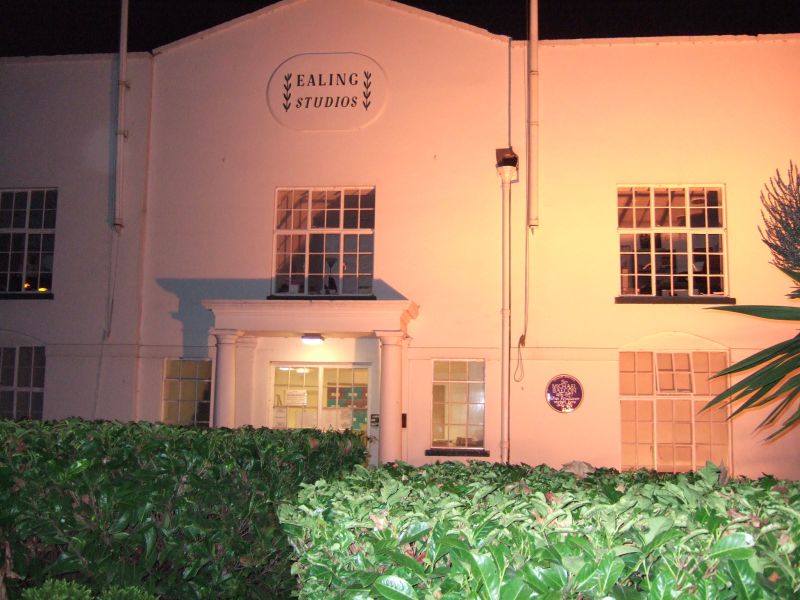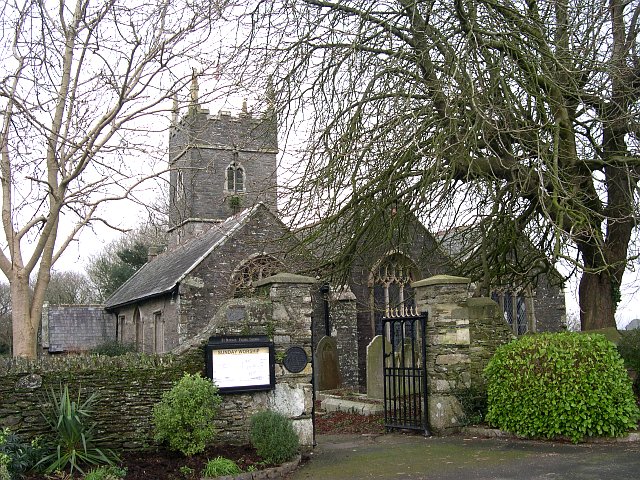|
Donald Sinden
Sir Donald Alfred Sinden (9 October 1923 – 12 September 2014) was a British actor. Sinden featured in the film ''Mogambo'' (1953), and achieved early fame as a Rank Organisation film star in the 1950s in films including ''The Cruel Sea (1953 film)'', '' Doctor in the House'' (1954), '' Simba'' (1955), '' Eyewitness'' (1956) and '' Doctor at Large'' (1957). He then became highly regarded as an award-winning Shakespearean and West End theatre actor and television sitcom star, winning the 1977 Evening Standard Award for Best Actor for '' King Lear'', and starring in the sitcoms '' Two's Company'' (1975–79) and ''Never the Twain'' (1981–91). Early life Sinden was born in St Budeaux, Plymouth, Devon on 9 October 1923, the middle child of chemist Alfred Edward Sinden and his wife Mabel Agnes (''née'' Fuller). His elder sister Joy became an English teacher at Claverham Community College in Battle, East Sussex, and younger brother Leon (1927–2015) became an actor. They gre ... [...More Info...] [...Related Items...] OR: [Wikipedia] [Google] [Baidu] |
Pinewood Studios
Pinewood Studios is a British film and television studio located in the village of Iver Heath, England. It is approximately west of central London. The studio has been the base for many productions over the years from large-scale films to television programmes, commercials, and pop promos. It is well known as the home of the ''James Bond'' and '' Carry On'' film franchises. History Pinewood Studios was built on the estate of Heatherden Hall, a large Victorian country house which was purchased by Canadian financier, and Member of Parliament (MP) for Brentford and Chiswick, Lt. Col. Grant Morden (1880–1932). He added refinements such as a ballroom, a Turkish bath and an indoor squash court. Due to its seclusion, it was used as a discreet meeting place for high-ranking politicians and diplomats; the agreement to create the Anglo-Irish Treaty was signed there. In 1934, building tycoon Charles Boot (1874–1945) bought the land and turned it into a country club. The bal ... [...More Info...] [...Related Items...] OR: [Wikipedia] [Google] [Baidu] |
Evening Standard Theatre Awards
The ''Evening Standard'' Theatre Awards, established in 1955, are the oldest theatrical awards ceremony in the United Kingdom. They are presented annually for outstanding achievements in London Theatre, and are organised by the ''Evening Standard'' newspaper. They are the West End's equivalent to Broadway's Drama Desk Awards. Trophies The trophies take the form of a modelled statuette, a figure representing Drama, designed by Frank Dobson RA, a former Professor of Sculpture at the Royal College of Art. Categories Three of the awards are given in the names of former ''Evening Standard'' notables: *Arts editor Sydney Edwards (who conceived the awards, and died suddenly in July 1979) for the Best Director category. *Editor Charles Wintour (who as deputy-editor in 1955, launched the awards after a nod from the proprietor, Lord Beaverbrook') for Most Promising Playwright. *Long-serving theatre critic Milton Shulman (for several years a key member of the judging panel) for the Out ... [...More Info...] [...Related Items...] OR: [Wikipedia] [Google] [Baidu] |
Ealing Studios
Ealing Studios is a television and film production company and facilities provider at Ealing Green in West London. Will Barker bought the White Lodge on Ealing Green in 1902 as a base for film making, and films have been made on the site ever since. It is the oldest continuously working studio facility for film production in the world, and the current stages were opened for the use of sound in 1931. It is best known for a series of classic films produced in the post-WWII years, including '' Kind Hearts and Coronets'' (1949), '' Passport to Pimlico'' (1949), ''The Lavender Hill Mob'' (1951), and '' The Ladykillers'' (1955). The BBC owned and filmed at the Studios for forty years from 1955 until 1995. Since 2000, Ealing Studios has resumed releasing films under its own name, including the revived '' St Trinian's'' franchise. In more recent times, films shot here include ''The Importance of Being Earnest'' (2002) and ''Shaun of the Dead'' (2004), as well as '' The Theory of Ev ... [...More Info...] [...Related Items...] OR: [Wikipedia] [Google] [Baidu] |
Oscar Wilde
Oscar Fingal O'Flahertie Wills Wilde (16 October 185430 November 1900) was an Irish poet and playwright. After writing in different forms throughout the 1880s, he became one of the most popular playwrights in London in the early 1890s. He is best remembered for his epigrams and plays, his novel '' The Picture of Dorian Gray'', and the circumstances of his criminal conviction for gross indecency for consensual homosexual acts in "one of the first celebrity trials", imprisonment, and early death from meningitis at age 46. Wilde's parents were Anglo-Irish intellectuals in Dublin. A young Wilde learned to speak fluent French and German. At university, Wilde read Greats; he demonstrated himself to be an exceptional classicist, first at Trinity College Dublin, then at Oxford. He became associated with the emerging philosophy of aestheticism, led by two of his tutors, Walter Pater and John Ruskin. After university, Wilde moved to London into fashionable cultural and social circ ... [...More Info...] [...Related Items...] OR: [Wikipedia] [Google] [Baidu] |
Lord Alfred Douglas
Lord Alfred Bruce Douglas (22 October 1870 – 20 March 1945), also known as Bosie Douglas, was an English poet and journalist, and a lover of Oscar Wilde. At Oxford he edited an undergraduate journal, ''The Spirit Lamp'', that carried a homoerotic subtext, and met Wilde, starting a close but stormy relationship. Douglas's father, the Marquess of Queensberry, abhorred it and set out to humiliate Wilde, publicly accusing him of homosexuality. Wilde sued him for criminal libel, but some intimate notes were found and Wilde was later imprisoned. On his release, he briefly lived with Douglas in Naples, but they had separated by the time Wilde died in 1900. Douglas married a poet, Olive Custance, in 1902 and had a son, Raymond. On converting to Roman Catholicism in 1911, he repudiated homosexuality, and in a High-Catholic magazine, ''Plain English'', expressed openly anti-Semitic views, but rejected the policies of Nazi Germany. He was jailed for libelling Winston Churchill over clai ... [...More Info...] [...Related Items...] OR: [Wikipedia] [Google] [Baidu] |
Hove
Hove is a seaside resort and one of the two main parts of the city of Brighton and Hove, along with Brighton in East Sussex, England. Originally a "small but ancient fishing village" surrounded by open farmland, it grew rapidly in the 19th century in response to the development of its eastern neighbour Brighton, and by the Victorian era it was a fully developed town with borough status. Neighbouring parishes such as Aldrington and Hangleton were annexed in the late 19th and early 20th centuries. The neighbouring urban district of Portslade was merged with Hove in 1974. In 1997, as part of local government reform, the borough merged with Brighton to form the Borough of Brighton and Hove, and this unitary authority was granted city status in 2000. Name and etymology Old spellings of Hove include Hou (Domesday Book, 1086), la Houue (1288), Huua (13th century), Houve (13th and 14th centuries), Huve (14th and 15th centuries), Hova (16th century) and Hoova (1675). The etym ... [...More Info...] [...Related Items...] OR: [Wikipedia] [Google] [Baidu] |
Webber Douglas Academy Of Dramatic Art
Webber may refer to: *Webber, Kansas, a US city *Webber Township, Jefferson County, Illinois, USA *Webber Township, Lake County, Michigan, USA *Webber International University, in Babson Park, Florida, USA *Webber (surname) Webber (/ˈwɛbər/) is an English occupational surname meaning '' weaver''. Etymology Webber is an occupational surname referring to, "a maker of cloth". The ending "er" generally denotes some employment, examples include Miller and Salter. Th ..., people with the surname ''Webber'' See also * Weber (other) {{disambiguation ... [...More Info...] [...Related Items...] OR: [Wikipedia] [Google] [Baidu] |
George And Margaret
''George and Margaret'' is a comedy play by British writer Gerald Savory, which was first staged in 1937. It had a very successful run in the West End, beginning at Wyndham's Theatre before transferring to the Piccadilly Theatre, lasting for over seven hundred performances. The cast was headed by Nigel Patrick, Jane Baxter, Ann Casson and Joyce Barbour. The ''New Statesman'' critic singled out Irene Handl's brief appearance as a maid as a highlight. The new monarch George VI and his wife Elizabeth attended a performance of the show. Following its London success, Noël Coward directed the work for its transfer to Broadway. Plot The play portrays a day in the lives of a middle-class London family and their servants. They are thrown into chaos by the suddenly-announced arrival of their old friends George and Margaret for dinner that evening. The snobbish and domineering mother forces all family members to attend, despite the resentment of her children. However, the anticipated ... [...More Info...] [...Related Items...] OR: [Wikipedia] [Google] [Baidu] |
Conscription
Conscription (also called the draft in the United States) is the state-mandated enlistment of people in a national service, mainly a military service. Conscription dates back to Ancient history, antiquity and it continues in some countries to the present day under various names. The modern system of near-universal national conscription for young men dates to the French Revolution in the 1790s, where it became the basis of a very large and powerful military. Most European nations later copied the system in peacetime, so that men at a certain age would serve 1–8 years on active duty and then transfer to the military reserve force, reserve force. Conscription is controversial for a range of reasons, including conscientious objection to military engagements on religious or philosophical grounds; political objection, for example to service for a disliked government or unpopular war; conscription and sexism, sexism, in that historically men have been subject to the draft in the most ... [...More Info...] [...Related Items...] OR: [Wikipedia] [Google] [Baidu] |
Brighton
Brighton () is a seaside resort and one of the two main areas of the City of Brighton and Hove in the county of East Sussex, England. It is located south of London. Archaeological evidence of settlement in the area dates back to the Bronze Age, Roman and Anglo-Saxon periods. The ancient settlement of "Brighthelmstone" was documented in the ''Domesday Book'' (1086). The town's importance grew in the Middle Ages as the Old Town developed, but it languished in the early modern period, affected by foreign attacks, storms, a suffering economy and a declining population. Brighton began to attract more visitors following improved road transport to London and becoming a boarding point for boats travelling to France. The town also developed in popularity as a health resort for sea bathing as a purported cure for illnesses. In the Georgian era, Brighton developed as a highly fashionable seaside resort, encouraged by the patronage of the Prince Regent, later King George IV, who spent ... [...More Info...] [...Related Items...] OR: [Wikipedia] [Google] [Baidu] |
Ditchling
Ditchling is a village and civil parish in the Lewes District of East Sussex, England. The village is contained within the boundaries of the South Downs National Park; the order confirming the establishment of the park was signed in Ditchling. There are two public houses, The Bull and The White Horse; two cafes, The Nutmeg Tree and The Green Welly; a post office, florist, delicatessen and other shops. Ditchling has community groups and societies, including the Ditchling Film Society and the Ditchling Singers. Location The village lies at the foot of the South Downs in East Sussex, but very close to the border with West Sussex. The settlement stands around a crossroads with Brighton and Hove to the south, Burgess Hill and Haywards Heath to the north, Keymer and Hassocks to the west, and Lewes to the east, and is built on a slight spur of land between the Downs to the south and Lodge Hill to the north. Ditchling Beacon, one of the highest points on the South Downs, overlooks the ... [...More Info...] [...Related Items...] OR: [Wikipedia] [Google] [Baidu] |
St Budeaux
St Budeaux is an area and ward in the north west of Plymouth in the English county of Devon. Original settlement The name St Budeaux comes from Saint Budoc, the Bishop of Dol (Brittany). Around 480, Budoc is said to have founded a settlement and built a small church. The church eventually gave way to a permanent stone one, dedicated to Saint Budoc, which was erected shortly before the Norman conquest of England. The village is documented in William the Conqueror's Domesday Book of 1086. Known as Bucheside, it was valued at 30 shillings (around six times the amount of neighbouring manors). Over the course of the next few hundred years, Bucheside became Bodekishide, Budeokshed, and even Bottockishide and Butshead, the latter form being recorded on the Trevill monuments in the church. The modern name, St Budeaux, is itself a Frenchified "elegant" form. 15th to 18th centuries St Budeaux became a separate parish in 1482 by the decision of the Bishop of Exeter. During the early ... [...More Info...] [...Related Items...] OR: [Wikipedia] [Google] [Baidu] |
.jpg)





